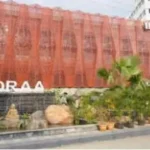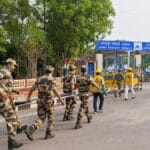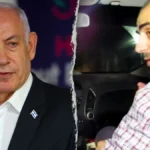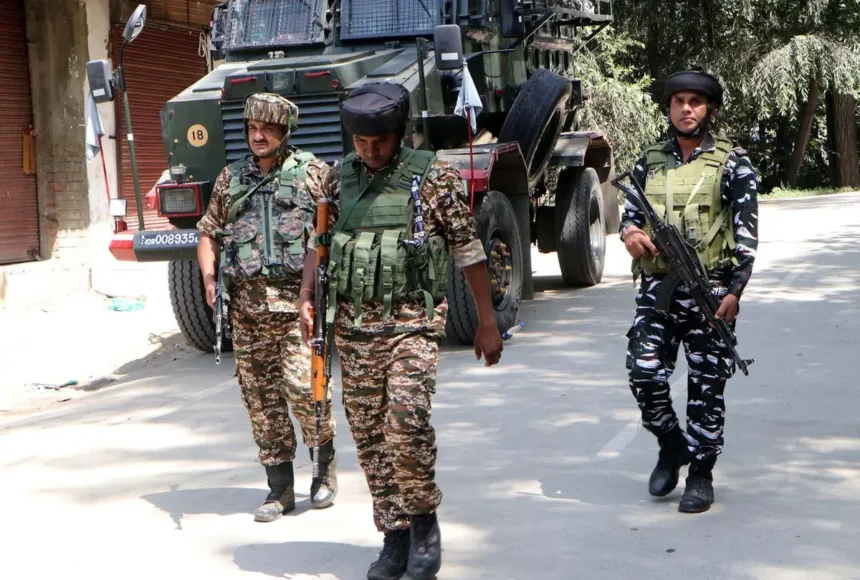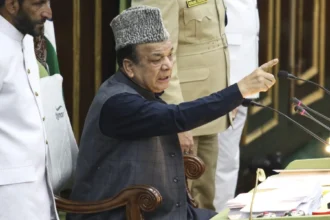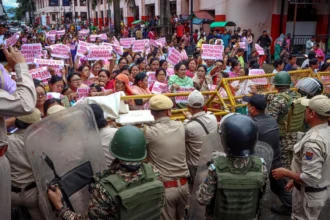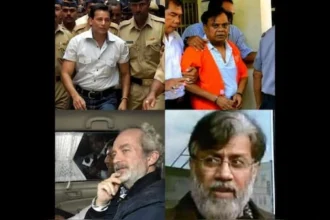Pathankot Attack: Pakistan’s inspectors visited Indian bases but returned accusing India of the assault, according to Tharoor, who criticized Pakistan’s handling of the Pathankot investigation.
At a community gathering in New York on Saturday, Congress MP Shashi Tharoor, who is in charge of one of the multi-party delegations that represents India’s anti-terrorism position, remembered the 2016 Pathankot air base assault.
Tharoor cited Prime Minister Narendra Modi’s unexpected visit to Pakistan in December 2015 as Islamabad’s last chance to show that it was committed to combating terrorism.
He criticized the way the investigation was conducted, pointing out that Pakistani investigators were permitted to tour Indian airbases yet came home accusing the Indians of carrying out the assault.
The Indian Air Base was attacked in January [2016], and our Prime Minister having just returned from a trip to Pakistan the month before [December 2015]. He was so shocked by this that he contacted the prime minister of Pakistan and said, “Why don’t you join the investigation?” Let’s figure out who is responsible.
Just think of the Indian military establishment’s dismay when they thought Pakistani investigators would visit Indian airways, only to return home and claim that all Indians were responsible. Unfortunately for us, 2015 was their final chance to act, collaborate, and demonstrate that they were sincere about putting an end to terror, as they consistently stated,” Tharoor added.
Days after then-prime minister Narendra Modi’s unexpected trip to Pakistan on December 25, 2015, to meet with his counterpart Nawaz Sharif, the Pathankot terror incident took place on January 2, 2016. Four members of the United Jihad Council broke into the Indian Air Force’s Western Air Command’s high-security Pathankot Air Force Station on the day of the attack. All four terrorists and two Indian security guards were killed in the resulting gunfight, while one officer subsequently passed away from wounds received in the conflict.
With help from Indian authorities, a Pakistani Joint Investigation Team (JIT) was allowed entry to the Indian Air Force installation after the incident in order to collect evidence. Islamabad did not honor the agreement and did not provide India with any proof, despite the agreement that an NIA team would visit Pakistan in return.
At the meeting hosted by the Indian Consulate General in New York, which was attended by prominent Indian-Americans as well as representatives from prominent media outlets and think tanks, Tharoor reaffirmed India’s unambiguous message to Pakistan: “We didn’t want to start anything.” All we were doing was giving terrorists a message.
The delegation’s activity in New York is a component of India’s larger diplomatic effort to fortify international ties, advance its anti-terrorism posture, and encourage cooperation on counterterrorism and international security initiatives.
India will send a statement against “terrorism” through seven multi-party delegations.
Each of the multi-party delegations referred to the Indian diaspora as a “force multiplier” and exhorted its members to underline India’s stance against terrorism in their respective nations’ political and public discourses.
The efforts of these delegates were recognized by External Affairs Minister S Jaishankar, who wrote on X: “India stands together in declaring zero tolerance for terrorism.”
These delegations are a part of India’s larger effort, which involves sending seven multi-party teams to 33 major cities around the world to convey India’s stance on terrorism and reveal Pakistan’s alleged involvement.
One such group visited Bahrain and briefed Deputy Prime Minister Shaikh Khalid bin Abdulla Al Khalifa on India’s resolve to combat cross-border terrorism.
Pathankot Attack: How Pakistan’s Investigation Backfired on Global Stage
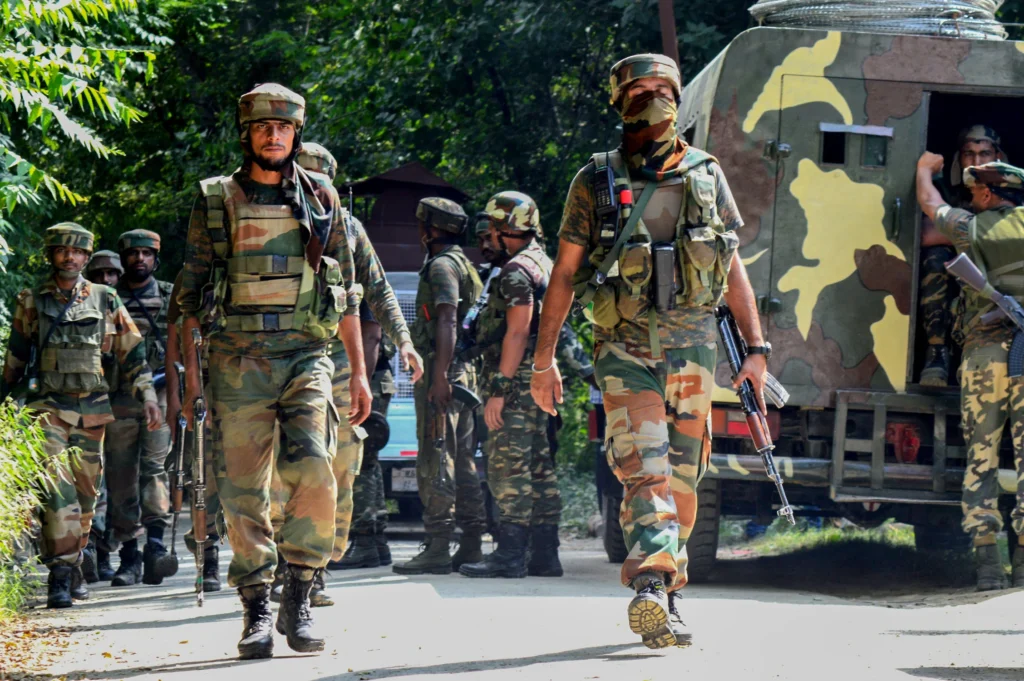
“Our government has sent us here, along with various other delegations comprising all party members across various parts of the world, so that the world knows of the threat that India has been facing,” said Asaduddin Owaisi, the head of AIMIM and a member of the Bahrain group, in response to a question.
“Terrorists have justified the killings of innocent people in India,” he continued. We believe that there is no distinction between the ideology of ISIS Takfiri and Pakistani terrorists.
In the wake of the April 22 terror assault in Pahalgam that claimed the lives of 26 civilians, other Indian teams traveled to nations including South Korea and Slovenia to inform officials of India’s zero-tolerance policy.
India’s military reaction to the Pahalgam attack, Operation Sindoor, was discussed with the Indian diaspora in South Korea by a team headed by JD(U) MP Sanjay Jha, who provided information about the campaign.
Taking “India’s strong message against terrorism to the world,” an all-party delegation headed by NCP MP Supriya Sule visited Qatari MPs in Doha, including Deputy Speaker of the Qatar Shura Council Dr. Hamda Al Sulaiti.
“Terrorists have justified the killings of innocent people in India,” he continued. We believe that there is no distinction between the ideology of ISIS Takfiri and Pakistani terrorists.
In the wake of the April 22 terror assault in Pahalgam that claimed the lives of 26 civilians, other Indian teams traveled to nations including South Korea and Slovenia to inform officials of India’s zero-tolerance policy.
India’s military reaction to the Pahalgam attack, Operation Sindoor, was discussed with the Indian diaspora in South Korea by a team headed by JD(U) MP Sanjay Jha, who provided information about the campaign.
Taking “India’s strong message against terrorism to the world,” an all-party delegation headed by NCP MP Supriya Sule visited Qatari MPs in Doha, including Deputy Speaker of the Qatar Shura Council Dr. Hamda Al Sulaiti.
A group headed by DMK MP Kanimozhi Karunanidhi, meantime, traveled to Slovenia as part of the outreach initiative called “Taking Bharat’s message to the world.”
The Indian diaspora is a “force multiplier,” according to all delegations, and they are urged to spread the word about India’s anti-terror posture in their home countries.
Following the Pahalgam assault on April 22 that claimed 26 lives, tensions between India and Pakistan have increased, prompting these diplomatic initiatives. On May 7, India retaliated by carrying out precise airstrikes as part of Operation Sindoor on terror sites in Pakistan and Pakistan-occupied Kashmir.
On May 8, 9, and 10, Pakistan attempted to target Indian military sites in retaliation, to which India replied forcefully.
For more updates and other exciting news, visit our website now!



